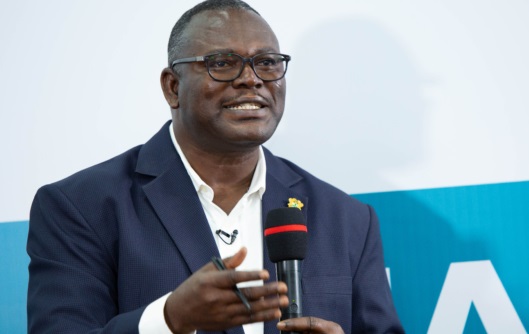Ghana must pursue green growth policies in new industrial clusters, says Dr Ali-Nakyea
Ghana, like many other developing countries, has long relied on primary commodities such as cocoa, gold, and oil as the major export earners for its economy. However, as noted by tax expert Dr Ali-Nakyea, this over-reliance on primary commodities can lead to significant economic instability and vulnerability to external shocks, particularly given the volatile prices of these commodities.
In response to these challenges, Dr Ali-Nakyea has called for Ghana to aggressively grow and diversify its small open economy. Making a presentation at the 60th Anniversary Celebration of the Institute Chartered of Accountants Ghana (ICAG) on Thursday, April 27, 2023, Dr Ali-Nakyea specifically recommended that Ghana pursue green growth policies in new industrial clusters such as the critical minerals value chain and renewables. This, he argues, could help reduce the country’s dependence on primary commodities and provide a more stable and sustainable foundation for economic growth.
There are several compelling reasons why Ghana should heed Dr Ali-Nakyea’s advice. For one, the global economy is undergoing a profound shift towards sustainable and green growth, driven by concerns about climate change and environmental degradation. By positioning itself at the forefront of this trend, Ghana could not only reduce its dependence on primary commodities but also tap into growing global demand for sustainable products and services.
Moreover, the critical minerals value chain and renewables offer significant potential for economic growth and job creation in Ghana. For example, Ghana is already a major producer of gold, and developing a critical minerals value chain could enable the country to extract greater value from its mineral resources. Similarly, Ghana’s abundant solar energy resources make it well-suited to develop a thriving renewable energy sector, which could create jobs and reduce the country’s reliance on fossil fuels.
Of course, pursuing green growth policies will require significant investment and support from both public and private actors. This is where initiatives such as the Ghana Infrastructure Investment Fund (GIIF) and the Minerals Income Investment Fund (MIIF) can play a critical role. By providing funding and other forms of support to green growth initiatives, these organizations can help unlock Ghana’s potential for economic diversification and sustainable growth.
Ghana’s reliance on primary commodities presents a significant challenge to the country’s long-term economic stability and growth. However, by aggressively pursuing green growth policies in new industrial clusters such as the critical minerals value chain and renewables, and with the support of organizations such as the GIIF and MIIF, Ghana can reduce its dependence on primary commodities and position itself for sustainable and prosperous economic growth in the years to come.








